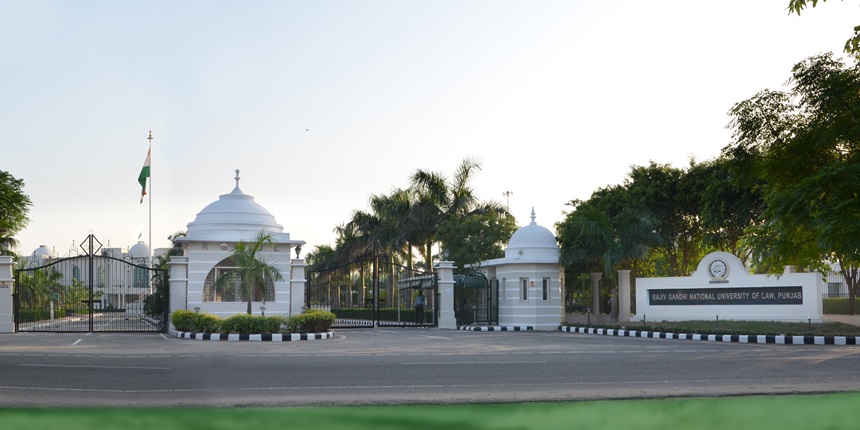Explainer: How Aligarh Muslim University’s minority status became the subject of a Supreme Court case
The Supreme Court case on AMU minority status will be heard on January 23. Its decision will have implications for its reservation policy.
 The case on AMU minority status will now be heard on January 23 (Image: amu.ac.in)
The case on AMU minority status will now be heard on January 23 (Image: amu.ac.in)Atul Krishna | January 22, 2024 | 05:45 PM IST
NEW DELHI: The Supreme Court hearing on the minority status of the Aligarh Muslim University (AMU) is set for Tuesday, January 23.
The Aligarh Muslim University minority status has a huge implication on how the university admits students. In 2005, AMU introduced a 50% reservation for Muslim students in postgraduate medical courses, claiming that the university is a minority institution.
However, this reservation was challenged in the Allahabad High Court which ruled that AMU cannot be considered a minority institution and that it cannot reserve seats solely for Muslim students. AMU then challenged this judgment in the High Court. The issue hasn’t been resolved in nearly 20 years.
The debate itself has decades of history.
The current court case relates to how AMU was founded and by whom; whether it was founded for Muslim students, how it became a university; how it eventually came to be under the central government; and the multiple amendments to the AMU Act over years – the most critical one for the current case was in 1981 – that have defined and redefined its character. Here’s a quick explainer on the issue.
Is AMU a private college?
AMU is a central government university, established through the Aligarh Muslim University Act 1920.
Aligarh Muslim University was founded by Syed Ahmed Khan, who was a judge and educationist, as the Muhammadan Anglo-Oriental College in 1877 . Later, as efforts to convert the college into a university gained momentum, patrons started a Muslim University Association to collect funds to transform the college into a university.
When the association collected enough funds as prescribed by the ruling British colonial government, it passed the Aligarh Muslim University Act in 1920. Later, the Aligarh Muslim University Act was amended in 1965 giving the President of India the power to appoint the governing body members, bringing it under the central government.
What is the rank of AMU in India today?
Aligarh Muslim University is ranked ninth in the National Institutional Ranking Framework (NIRF) released by the education ministry every year. It is also ranked as one of the top 10 Indian universities in the Shanghai Rankings. AMU’s maths department was also ranked 1st in Global Universities for Mathematics in India ranking published by the latest US News and World Report 2023.
Is Aligarh University only for Muslims?
No. Although the university reserves 50% seats in all courses for students who have graduated from AMU schools, Aligarh Muslim University does not have any reservation on religious grounds.
Is AMU a minority institution or not?
The minority status of AMU is still under discussion in court. The Supreme Court will hear the next session of proceedings on January 23. The case itself is complex due to its history of several amendments which caused various insertions and deletions over the years.
When was the AMU Act first amended?
The Act was first amended in 1951. Section 23 of the initial Act in 1920 maintained that governing body members of the university should contain people from the Islamic faith. This provision was later removed through an amendment in 1951 following the suggestions of a 22 member Select Committee.
The amendment also allowed the Visitor, that is the President of India, the powers to annul any proceedings or decisions taken by the university.
Who was in the Select Committee for the 1951 amendment?
The 22-member select committee included renowned educationists such as freedom fighter Deshbandhu Gupta, former minister Syama Prasad Mukherjee, BR Ambedkar and former president Zakir Hussain, who was also vice-chancellor of AMU.
The committee had noted that it “proposed the same amendments” as it did to the Banaras Hindu University Act 1915. The dissent notes of the committee meeting also mentions that the majority view was that the terms ‘Hindu’ and ‘Muslim’ should be removed from the title of both Acts.
When did AMU come under the central government?
The Aligarh Muslim University Act was further amended in 1965 giving the President of India the power to appoint the governing body members. The 1951 amendment had allowed the governing body members some amount of autonomy. This changed with the 1965 amendment.
In 1967, petitioners challenged this amendment arguing that it violated fundamental rights including the right to freedom of religion, right to conserve culture and language, etc.
What was the initial Supreme Court Judgment on AMU’s minority status?
Hearing the petition in 1967, a five-bench judge of the Supreme Court stated that although the Aligarh Muslim University Act was “passed as a result of the efforts of the Muslim minority” it does not mean that the university was “established by the Muslim minority”.
The court reasoned that AMU was not a minority institution since it was set up as per an Act in Parliament. However, the matter did not end there.
What happened in 1981?
In 1981, the Aligarh Muslim University Act was further amended to define the university as an “educational institution of their choice established by the Muslims of India”. A clause was inserted stating that the university exists “to promote especially the educational and cultural advancement of the Muslims of India”.
Why did AMU reserve seats for Muslim students in 2005?
In 2005, the AMU Aligarh reserved 50% seats in postgraduate medical courses for Muslim candidates, claiming to be a minority institution on the basis of the 1981 amendment.
The move was challenged in the Allahabad High Court which struck down the reservation. The university challenged this judgment in the Supreme Court in 2006. The matter is currently being heard by a seven-judge bench.
Follow us for the latest education news on colleges and universities, admission, courses, exams, research, education policies, study abroad and more..
To get in touch, write to us at news@careers360.com.




